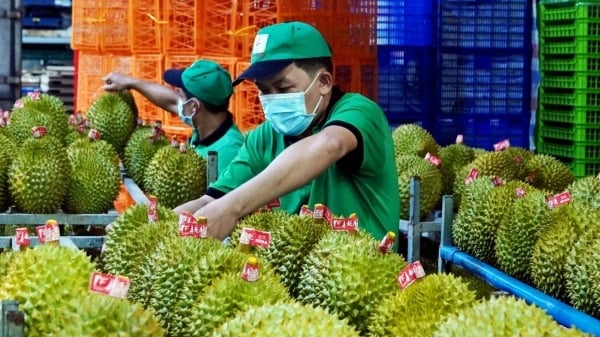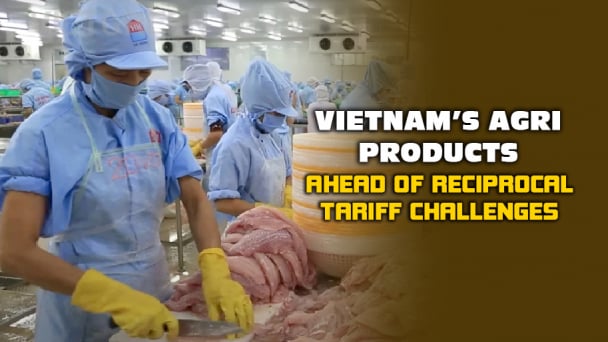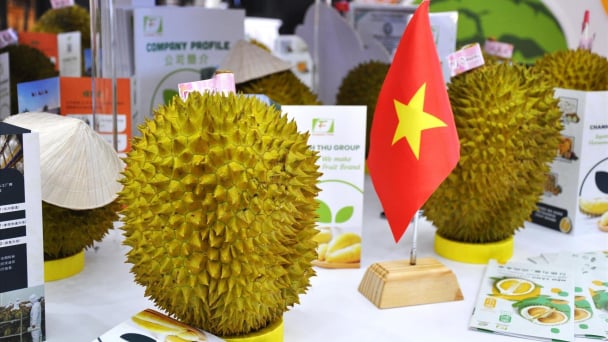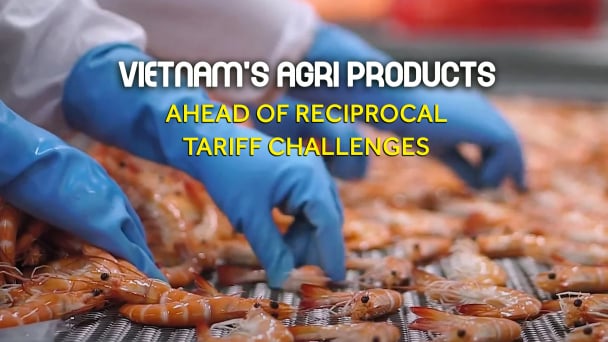June 1, 2025 | 07:01 GMT +7
June 1, 2025 | 07:01 GMT +7
Hotline: 0913.378.918
June 1, 2025 | 07:01 GMT +7
Hotline: 0913.378.918
It is estimated that Vietnam's fruit and vegetable exports in May 2024 reached USD 700 million, up 16.1% compared to April 2024 and up 7.4% compared to May 2023.
Overall, in the first five months of 2024, the export turnover of fruits and vegetables is estimated to reach USD 2.59 billion, an increase of 28.2% compared to the same period in 2023. In the early months of 2024, fruit and vegetable exports recorded high growth to key export markets such as China, South Korea, the United States, Japan, and Thailand.

Our country's fruit and vegetable export turnover in the first 5 months of 2024 is estimated to reach 2.59 billion USD, up 28.2% over the same period in 2023. Photo: TL.
The value of fruit and vegetable exports to the Chinese market led in the first four months of 2024, reaching USD 1.16 billion, up 44.2% compared to the same period in 2023; followed by the South Korean market at USD 107 million, up 63.3%; the United States at USD 93.3 million, up 33%; Japan at USD 61.4 million, up 13.4%; and Thailand at USD 59.1 million, up 95.2%.
With the current growth momentum, the fruit and vegetable exports forecast remains positive. The increasing demand from the Chinese market will be a significant driver for this export growth. China is the main export market for Vietnam's fruits and vegetables, accounting for 61.4% of the total export value of this commodity in the first four months of 2024.
Currently, Vietnam has 14 main agricultural products officially exported to the Chinese market, including durian, bird's nest, sweet potatoes, dragon fruit, longan, rambutan, mango, jackfruit, watermelon, banana, black jelly, mangosteen, lychee, and passion fruit.
China signed a quarantine protocol for watermelons in December 2023, which will officially take effect on June 12, 2024. Additionally, protocols for the export of frozen durian, fresh coconut, avocado, and passion fruit to China are being actively negotiated.
However, for sustainable exports, Vietnam's fruit and vegetable products must further improve their quality. Currently, not only China but many other countries worldwide are tightening the quality standards for imported agricultural products.
Translated by Linh Linh
/2025/05/30/5010-5-173638_943.jpg)
(VAN) On May 29, at the GO! My Tho Trading Center, the Tien Giang Department of Industry and Trade, in collaboration with Central Retail Corporation, held the opening ceremony of the 3rd Fruit Festival 2025.

(VAN) Reciprocal tariffs are exerting pressure on U.S. exports, prompting Vietnamese firms to shift their focus to Muslim markets, Thailand, and Brazil.

(VAN) A free booth for two years at Xinfadi, Beijing's largest wholesale market, will be allocated to Vietnam's agricultural products.

(VAN) Vietnamese shrimp exporters are actively looking for alternative markets and accelerating shipments to the United States in response to the pressure of impending reciprocal tariffs. This is occurring during a temporary tariff suspension.

(VAN) The import-export turnover between Vietnam and Singapore rose amid a trade rebound, with machinery, electrical equipment, and fuels making up the majority of the transaction value.

(VAN) Director General of the General Administration of Customs of China, Ms. Sun Mai Jun, has pledged to implement measures that will ease the import process for Vietnamese agricultural products.

(VAN) Although Vietnam is still increasing its coffee exports, the industry is currently in the process of determining market strategies in response to the U.S. imposition of reciprocal tariffs.